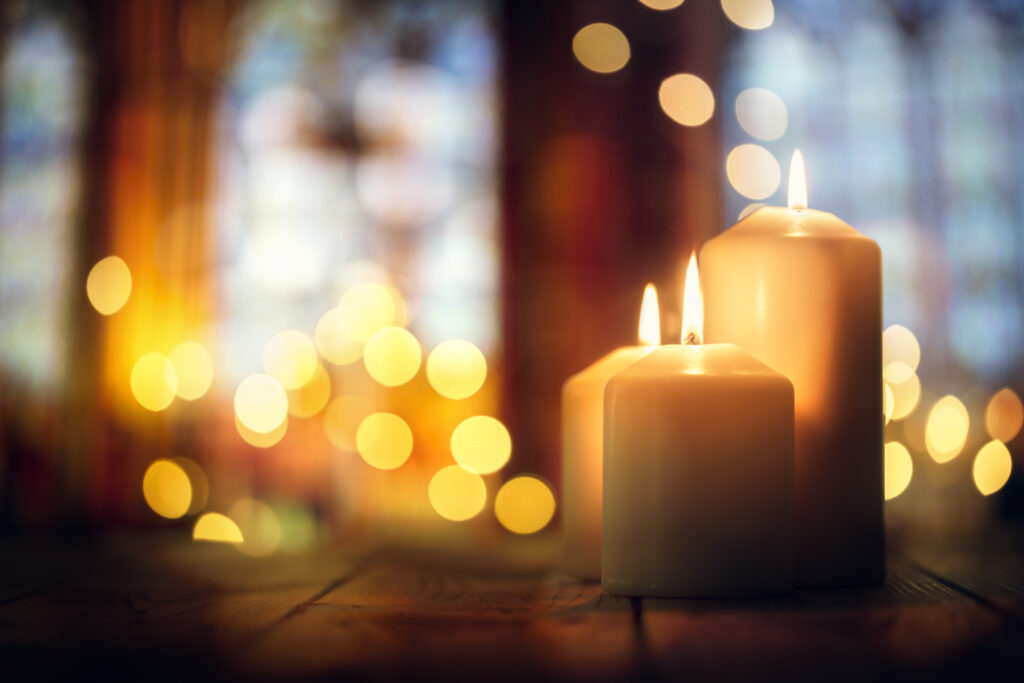
In this article
Introduction
In the sacred moments of worship, the opening prayers hold the power to set the tone for the entire congregation. These prayers act as a spiritual gateway, inviting divine presence and guiding hearts towards a collective reverence. Whether you’re a devoted believer or seeking a moment of reflection, join us in exploring a collection of prayers that open the gates of worship, uniting souls in a harmonious journey of spiritual connection.
Short Prayers
1. A Prayer for Unity
In the presence of the Divine, we gather as one, seeking unity in spirit and purpose. As we commence this worship, may our hearts beat in unison, and may the echoes of our collective prayer resonate with the harmony of a shared faith.
2. Opening the Path of Light
Heavenly Father, illuminate our worship with the radiant light of your presence. As we step into this sacred space, may your grace guide our steps, dispelling darkness and paving the way for a worship filled with clarity and insight.
3. Invoking Divine Wisdom
Source of all wisdom, open the gates of understanding as we gather in worship. May the words spoken and heard be infused with your divine insight, and may our minds be receptive vessels for the profound teachings of our faith.
4. A Prayer for Humility
In humble reverence, we bow before you, O Lord. As we commence this worship, may our hearts be stripped of pride, and our spirits be clothed in the garments of humility. Let this time of worship be a sacred journey towards the essence of true devotion.
5. Blessing for Gratitude
Gracious God, we enter this place of worship with hearts overflowing with gratitude. Bless our expressions of thankfulness, and may our worship be a symphony of praise, lifting our souls to dwell in the joy of your boundless love.
Long Prayers
1. A Prayer of Invocation
In the serene and anticipatory moments leading to our collective worship, we find ourselves standing on the sacred threshold, invoking the profound and omnipresent Creator of all existence. As we assemble, may the gentle whispers of the divine breeze envelop and infuse this consecrated space with a sense of awe and reverence. With open hearts and spirits attuned to the sacred rhythms, we extend an invitation to celestial beings, welcoming their ethereal presence into our gathering. Let this harmonious convergence align our collective consciousness with the eternal symphony resonating throughout the cosmos, creating a transcendent atmosphere that transcends the confines of the earthly realm.
2. Journeying Together in Faith
Almighty God, as we embark on this collective odyssey of worship, we recognize the intricate tapestry woven from the diverse stories, experiences, and journeys within this congregation. With profound gratitude, we offer our combined prayers as fragrant incense—a beautiful and heartfelt offering ascending before Your majestic throne. Guide our steps along this shared path of faith, interweaving the individual narratives into a tapestry of unity. The unbreakable cords of love that bind us together serve as a testament to the strength derived from our interconnectedness, transforming our diverse stories into a harmonious and collective song of worship.
3. An Opening Prayer for Reverence and Surrender
Sovereign Lord, in this sacred and transcendent moment, we humbly surrender our hearts before Your divine presence, recognizing the magnitude of the sacred encounter we are about to embark upon. As we unfurl the tapestry of this worship, may the reverberations of our prayers echo through the sacred chambers of this space, resonating with the divine frequencies. Let the fragrance of our worship ascend as a sweet aroma, a pleasing offering to Your senses. May our surrender be more than a symbolic gesture but a profound and sincere acknowledgment of the boundless reverence we hold for Your eternal majesty—an acknowledgment of our place within the grand tapestry of Your divine plan.
Biblical Insights
The Bible offers profound insights on the significance of opening worship with prayer.
- Psalm 95:6 (NIV): “Come, let us bow down in worship, let us kneel before the Lord our Maker.”
- 1 Chronicles 16:29 (NIV): “Ascribe to the Lord the glory due his name; bring an offering and come before him. Worship the Lord in the splendor of his holiness.”
- Matthew 6:6 (NIV): “But when you pray, go into your room, close the door and pray to your Father, who is unseen. Then your Father, who sees what is done in secret, will reward you.”
- Philippians 4:6-7 (NIV): “Do not be anxious about anything, but in every situation, by prayer and petition, with thanksgiving, present your requests to God. And the peace of God, which transcends all understanding, will guard your hearts and your minds in Christ Jesus.”
Summarily, the Bible emphasizes the elements of gratitude, unity, reverence, and commitment in the prayers that open worship, setting the foundation for a spiritually enriching experience.
Famous Quotes on Prayer:
- “You pray in your distress and in your need; would that you might also pray in the fullness of your joy and in your days of abundance.” – Kahlil Gibran
- “True prayer is neither a mere mental exercise nor a vocal performance. It is far deeper than that – it is spiritual transaction with the Creator of Heaven and Earth.” – Charles Spurgeon
- “Prayer is not asking. It is a longing of the soul. It is daily admission of one’s weakness. It is better in prayer to have a heart without words than words without a heart.” – Mahatma Gandhi
- “I have been driven many times upon my knees by the overwhelming conviction that I had nowhere else to go.” – Abraham Lincoln
Studies & Statistics
While empirical studies specifically addressing the impact of prayers for opening worship are limited, broader research on prayer and religious practices provides valuable insights into their potential effects on individuals and congregations. Understanding the broader context contributes to recognizing the significance of opening prayers in the worship experience.
- Positive Effects on Mental Health: Numerous studies, such as those published in the Journal of Religion and Health, consistently highlight the positive correlation between religious practices, including prayer, and mental well-being. Engaging in prayer at the commencement of worship may contribute to a sense of calmness, focus, and emotional resilience.
- Enhanced Sense of Community: Research conducted by the Pew Research Center suggests that participation in religious activities, including communal prayer, is associated with a heightened sense of community and belonging. Prayers for opening worship, especially when inclusive and uniting, contribute to fostering a shared spiritual journey among congregants.
- Impact on Spiritual Connection: While not specific to opening prayers, studies like those found in the International Journal for the Psychology of Religion emphasize the role of prayer in fostering a deepened sense of spiritual connection. Opening prayers set the spiritual tone for worship, influencing individuals’ perceptions of divine presence and engagement.
- Correlation with Increased Attendance: Though not exhaustive, anecdotal evidence and observations from various religious communities suggest that the inclusion of meaningful and engaging opening prayers may positively impact worship attendance. A welcoming and spiritually enriching start may contribute to congregational enthusiasm and participation.
- Cross-Cultural Perspectives: Cross-cultural studies on prayer practices reveal diverse approaches to opening worship. While specific rituals and prayers vary, the common thread across cultures is the recognition of prayer as a fundamental element in initiating a sacred gathering. Understanding these global perspectives enriches the appreciation of the universality of opening prayers.
- Effect on Emotional Well-Being: Research from institutions such as Harvard Medical School underscores the potential benefits of prayer on emotional well-being. Opening prayers may create a supportive emotional environment, offering worshippers a moment of solace, reflection, and connection with a higher purpose.
While studies on the direct impact of prayers for opening worship may be limited, the broader body of research highlights the multifaceted benefits of religious practices, including prayer. These studies suggest that opening prayers play a vital role in shaping the psychological, emotional, and communal dimensions of the worship experience.
Exploring Sacred Symbols
In the sacred tapestry of worship, each symbol holds profound significance, weaving together a rich narrative that transcends the physical realm. Delving into the symbolism of sacred elements used in opening worship unveils a deeper layer of spiritual connection, inviting worshippers into a realm where the tangible and the transcendent harmonize.
- Candles: Candles have long been integral to worship, representing the illumination of divine light. Lighting candles signifies the presence of the divine, dispelling darkness, and guiding worshippers along the spiritual path. The flickering flame becomes a metaphor for the eternal flame of faith, inviting participants to kindle their inner light and offer it as a collective beacon.
- A Fragrant Offering of Devotion: The wafting fragrance of incense serves as a tangible symbol of prayers ascending to the divine realm. As the smoke rises, it symbolizes the elevation of worship, carrying with it the intentions, supplications, and praises of the worshippers. The use of incense not only engages the sense of smell but also invites a multisensory experience, deepening the connection between the material and the spiritual.
- Sacred Texts: Opening worship often involves the reading of sacred texts, be it the Bible, the Quran, or other revered scriptures. These texts are more than ink on paper; they are embodiments of divine wisdom and guidance. Holding, reading, and listening to these sacred words during worship serve as a conduit for spiritual revelation, aligning worshippers with the timeless truths embedded in the scriptures.
- Enhancing Focus and Reverence: Sacred symbols serve as focal points, directing worshippers’ attention to the divine. Candles, incense, and sacred texts create a physical and symbolic environment that fosters concentration and deepens reverence.
- Facilitating Transcendence: The use of symbols allows worshippers to transcend the mundane and connect with the sacred. The symbolism inherent in these elements provides a bridge between the material and the spiritual, facilitating a profound encounter with the divine.
- Symbolic Language of the Soul: Symbols speak a language that surpasses verbal expression. In the silence of worship, the flickering flame, the fragrant aroma, and the sacred text become a silent dialogue between the soul and the divine, transcending linguistic boundaries.
These sacred symbols contribute dynamically to the worship experience, engaging the senses, and creating a sacred atmosphere. They serve as conduits for spiritual expression, fostering a collective journey where worshippers, through the symbolism of these elements, traverse the realms of the earthly and the divine in harmonious unison.
The Evolution of Opening Worship in Modern Contexts
As society undergoes transformative changes shaped by technological advancements and shifting cultural landscapes, opening worship has adapted to meet the needs of a contemporary audience. This exploration delves into the ways in which traditional practices have evolved in response to the demands and opportunities presented by the modern world.
- Embracing Digital Platforms: In the age of technology, religious communities are embracing digital platforms to extend the reach of opening worship. Online streaming, virtual congregations, and interactive forums allow individuals to participate in sacred gatherings from the comfort of their homes. This shift not only accommodates the demands of modern life but also provides accessibility to a broader audience.
- Interconnected Communities: Modern opening worship transcends geographical boundaries, fostering interconnected communities. Social media, video conferencing, and collaborative online spaces enable individuals to share their worship experiences, exchange ideas, and form a global spiritual network. This interconnectedness reflects a contemporary approach to community-building that aligns with the realities of a digitally connected world.
- Innovative Rituals and Practices: The evolution of opening worship includes the emergence of innovative rituals and practices. From multimedia presentations to interactive elements, modern worship experiences incorporate a blend of tradition and innovation. This dynamic approach seeks to engage worshippers in meaningful ways, catering to diverse preferences and creating a space for spiritual exploration.
- Addressing Contemporary Concerns: Opening worship in modern contexts addresses contemporary concerns and issues. Whether it’s incorporating prayers for social justice, environmental stewardship, or mental health awareness, modern worship seeks to resonate with the pressing challenges faced by individuals and communities. This relevancy enhances the impact of opening worship in addressing the multifaceted aspects of contemporary life.
- Adapting to Changing Lifestyles: Recognizing the demands of changing lifestyles, opening worship in modern contexts adapts to accommodate diverse schedules and commitments. Flexible service timings, on-demand access to spiritual content, and the availability of resources for personal reflection cater to the diverse needs of individuals navigating the complexities of modern life.
- Balancing Tradition and Innovation: The evolution of opening worship in modern contexts involves a delicate balance between tradition and innovation. While preserving the core essence of sacred initiation, contemporary practices incorporate innovative elements that resonate with the sensibilities of a modern audience. This balance ensures the continuity of timeless spiritual traditions in a rapidly changing world.
As opening worship evolves to embrace the opportunities and challenges of the modern era, it continues to serve as a vital anchor for individuals seeking spiritual connection in an ever-changing world. This adaptive approach ensures that the essence of sacred initiation remains relevant and meaningful in the diverse tapestry of contemporary life.
FAQ
Opening worship with prayer sets a reverent tone, inviting divine presence and preparing hearts for spiritual connection. It aligns the congregation in a collective moment of devotion.
Absolutely. Opening prayers often contain universal themes of gratitude, humility, and reverence, making them accessible and meaningful to individuals of diverse faith backgrounds.
Worship leaders can enhance the impact of opening prayers by crafting sincere and inclusive prayers that resonate with the congregation’s spiritual journey. Engaging language and relevant themes foster a deeper connection.
While there are no strict rules, passages like Psalm 100 and 1 Timothy 2:8 provide biblical guidance. The key is to choose verses that emphasize gratitude, unity, and reverence.
Absolutely. Crafting personal prayers allows individuals to express their unique spiritual sentiments. It’s an opportunity for genuine connection with the divine and the community.


